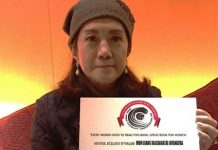
Introduction:
Family culture encompasses a set of values, beliefs, behaviors, and traditions that shape the dynamics within a family unit. From communication patterns to problem-solving strategies, family culture significantly influences an individual’s mental health and well-being. Understanding the impact of family cultures on mental health is crucial for fostering healthy familial relationships and promoting psychological resilience.
The Role of Family Dynamics:
Family dynamics play a pivotal role in shaping an individual’s mental health outcomes. A supportive and nurturing family environment can contribute to positive mental health outcomes, while dysfunctional family dynamics may exacerbate mental health issues. Communication styles, conflict resolution strategies, and emotional expression within the family unit profoundly impact an individual’s psychological well-being.
Communication Patterns:
Effective communication within the family fosters emotional intimacy, trust, and understanding. Open communication channels enable family members to express their thoughts, feelings, and concerns freely, which can mitigate feelings of isolation and loneliness. Conversely, a lack of communication or poor communication patterns characterized by criticism, hostility, or avoidance can contribute to heightened stress levels and interpersonal conflicts, leading to adverse mental health outcomes such as anxiety and depression.
Family Support and Cohesion:
Family support and cohesion serve as protective factors against mental health challenges. A cohesive family unit provides emotional support, validation, and a sense of belonging, which are essential for building resilience in the face of adversity. Strong family bonds can buffer the impact of external stressors and help individuals navigate life’s challenges more effectively. Conversely, familial conflict, neglect, or disengagement can erode trust and undermine emotional well-being, contributing to feelings of insecurity and instability.
Cultural Influences:
Cultural values and norms shape family dynamics and influence attitudes toward mental health within the family unit. The cultural stigma surrounding mental illness may deter individuals from seeking help or disclosing their struggles, leading to untreated mental health conditions. Moreover, cultural expectations regarding gender roles, familial obligations, and emotional expression can impact how mental health issues are perceived and addressed within the family context.
Intergenerational Transmission of Trauma:
Family cultures can perpetuate intergenerational cycles of trauma and dysfunction, wherein unresolved emotional wounds and maladaptive coping mechanisms are passed down from one generation to the next. Childhood experiences of neglect, abuse, or trauma can significantly impact an individual’s mental health trajectory, shaping their interpersonal relationships and coping strategies in adulthood. Recognizing and addressing intergenerational patterns of dysfunction is essential for breaking the cycle and promoting healing within the family system.
Resilience and Adaptability:
Despite the challenges posed by family cultures, individuals possess inherent resilience and adaptive capacities that enable them to navigate adversity and thrive in the face of adversity. Building resilience involves cultivating coping skills, fostering social support networks, and seeking professional help when needed. By fostering a culture of resilience within the family, individuals can develop the tools necessary to cope with stress, manage emotions, and maintain mental well-being in the face of adversity.
Conclusion:
The impact of family cultures on mental health is multifaceted, encompassing communication patterns, support systems, cultural influences, and intergenerational dynamics. Recognizing the role of family dynamics in shaping mental health outcomes is essential for promoting healthy familial relationships and fostering psychological resilience. By cultivating open communication, nurturing supportive environments, and addressing intergenerational patterns of dysfunction, families can become agents of positive change, facilitating healing, and promoting mental well-being for future generations.


















































